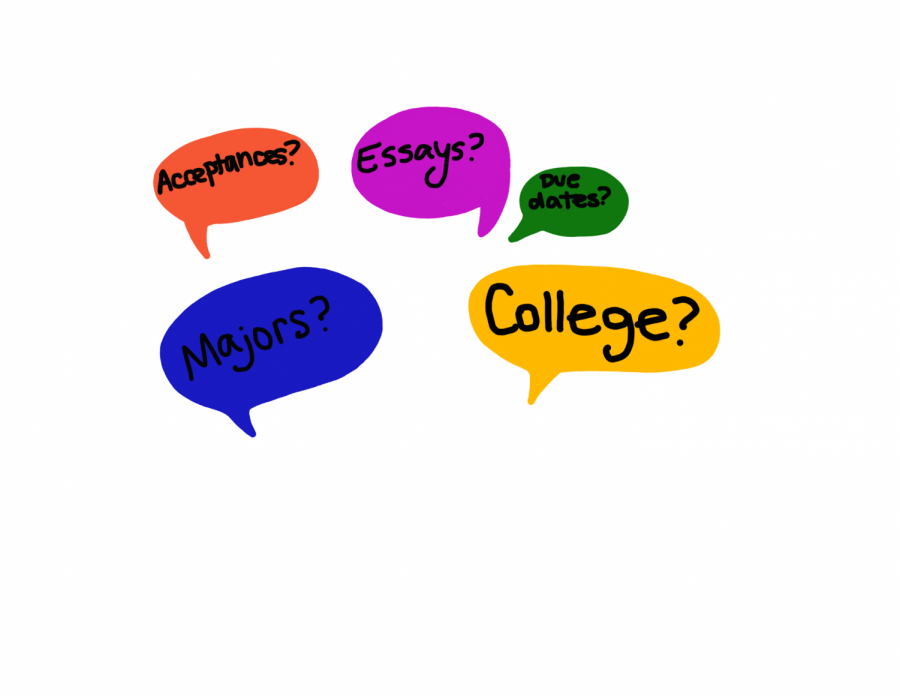College talk
Dec 9, 2019
Thanksgiving is just over, and we are now officially moving into the rest of the holiday season. And for most of us that means seeing a lot of family.
Personally, I love spending time with my family. I get to see my numerous cousins, aunts, and uncles, along with a large amount of others. Holiday gatherings are often the only time I’ll see someone all year, and now that I’m a senior in high school that means that I’m guaranteed to be asked over and over about one thing: college.
Now, these questions are well-intended, and they are relevant, as us seniors are right in the middle of college application season, but personally, I find these questions increasingly repetitive. At my family’s Thanksgiving celebration, for example, I was asked some variation of where I want to go, what my essays are about, and what I want to study by 12 separate people. Keep in mind that the whole Thanksgiving celebration lasted only about four hours. If you do the math, that means people asked me about college about once every 20 minutes. And from what I’ve heard, the situation is the same with most upperclassmen.
So at my family’s Thanksgiving, I decided to conduct a little bit of research in the interest of making the Chanukah, Christmas, and New Year’s celebrations that are rapidly approaching a little bit easier. When asked about college, I replied a few different ways, and made notes on those that were the most effective in keeping the conversation short and sweet. Throughout the evening, I used three main methods.
Method One: Answering every question directly and simply. (Ex: When asked where I am applying to college, I list every school on my list but give no more information than that.)
Method Two: Answering the question in a long, roundabout way that allows me to ramble off topic. (Ex: When asked what I want to study I answer and then begin describing my favorite classes and teachers throughout high school.)
Method Three: Turning the question around on the questioner. (Ex: When asked what my top choice of college is, I answer and then ask where they went to college and how they liked it.)
I won’t bore you with my data, because my family Thanksgiving offered me the opportunity to collect lots of it. But at the end of the week, I found that I had some good results. I noticed that out of all of my methods, number three was the most effective in moving the conversation onto a more interesting topic. As with many people, my family seemed to enjoy talking about themselves, and I learned many new things about my relatives and I had interesting conversations with them. I also found that method one worked the best in simply cutting the conversation short. As might be expected, when I didn’t elaborate, the questioner soon became bored or uncomfortable with the topic and would come up with an excuse to leave. Though this did achieve my goal of stopping the college talk, it left me feeling rather guilty. Finally, method two had some inconclusive data, with some adults continually returning to the topic of college and others cutting the conversation short.
So I hope that high school upperclassmen such as myself will be able to make use of this information, and spend their holiday discussing something other than the ever-present college talk.




